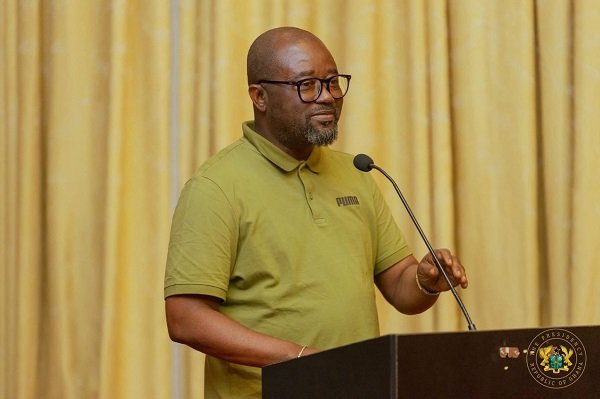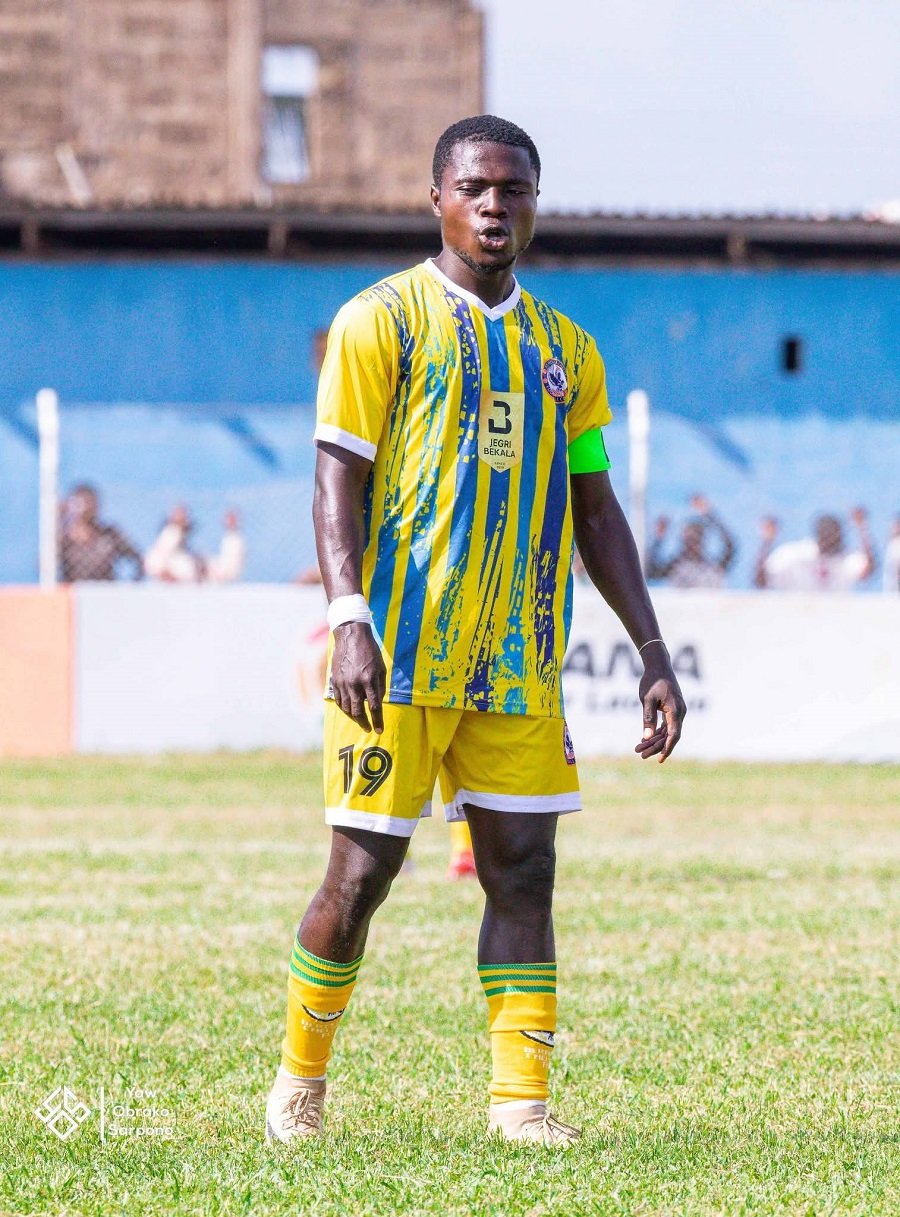Sports
Post-Birmingham C’wealth Games: Let’s pick leaf from Nigeria

One thing that the just-ended Commonwealth Games in Birmingham may have thought Ghanaians is that investment and planning is key.
These are areas that the nation has fallen short over the years.
The exploits of Nigeria in Birmingham where they amassed 35 medals did not come from the blues. Years of meticulous planning backed by finance got them to the podium many times where their national anthems blared across the world. As hammered myriad times, you do not reap where you have not sown. When you put in something negligible, you would not expect to reap in bounty.
Three years before the Games, Nigeria’s Sports Minister Sunday Dare, launched what was termed as ‘Adopt-an-Athlete Initiative’ that was preceded by consultations with athletes and federations nationwide in a bid to find out the root cause of the challenges athletes faced which impeded their performances at the regional and world stages.
It was established that the unavailability of funding and grants, unavailability of scholarships and inadequate support amongst other challenges were what were militating against the rise of their athletes. It was also found that many of the athletes did not have enough income to survive and rather spent a lot of time trying to earn a living rather than spend time to further develop their skills.
The way out was to give them financial support to make a difference.
To be honest, the ‘Adopt an Athlete’ initiative itself was hatched by a sports journalist, Jide Fashikun. Sorrowfully, it was reported by the Vanguard newspaper of Nigeria that just when the programme was beginning to take shape and gain acceptance by Nigerians, Fashikun passed on.
Luckily, his partner on the project, Mary Onyali, was appointed as an aide to the present Sports Minister, Sunday Dare, who bought into the idea and latched on to it.
Companies, individuals and even state governments keyed into it, adopted potential athletes who they provided funds for to cater for their training and sundry requirements in order to avoid distractions as they prepared for competitions.
The reward is what Nigeria is reaping today. Who would have thought that a Nigerian athlete would be ruling the world in 100m hurdles with a gold medal added to it?
So, it goes without saying that a number of State Governors – from Delta, Edo, Ogun, Bayelsa and Lagos among others, were said to have embraced the initiative. After serious engagement, financial institutions like Fidelity Bank, Zenith Bank, UBA Bank, Access Bank and other corporate bodies also jumped into ‘fray’ as 38 athletes in total became beneficiaries of the ‘Adopt-an-Athlete’ initiative.
According to sources, once the initiative kicked off, some home-based athletes got as much as $10,000 paid directly into their accounts and managed solely by them.
“Some use it to pay for their coaches, kits, nutrition, health insurance, and others,” the source said.
High profile foreign-based athletes also earned $20,000 due to the fact that they had a higher overhead.
Now, three months before the Commonwealth Games, 21 meetings were said to have been held at various levels just to make sure all bases were covered. They were simply being deliberate about their goals. They knew what they wanted!
It did not end there.
The Sports Minister ensured that athlete’s allowances, bonuses and award money was available 48 hours ahead of their game. Before most athletes competed in their games, they had their allowances readily available to them. Some allowances were even increased and new bonuses activated.
Hitherto, too, Nigeria only participated in four disciplines at the Games because of unavailability of funds. This time around, the Birmingham came with nine – five more well prepared disciplines were added.
Who says good investment and planning is not the way to go? As you may have been aware, many records were smashed, glass ceilings shattered and new records set. Nigeria set four amazing new Games record, a world record and had their finest outing ever in the history of the Commonwealth Games.
It is imperative to note that Nigeria participated in nine events in Birmingham and emerged as the best in Africa and creditably seventh in the World. Records suggest that the Birmingham Commonwealth multi-sport festival was the largest ever held, with 72 participating nations.
Here in Ghana, we sent 13 disciplines and returned home with five medals (minus gold), placing 28th. Nigeria amassed 12 gold (won by Nigerian women athletes), nine silver and 14 bronze medals – 35 in all. It is Nigeria’s best outing in 15 appearances at the Games since its first participation in Auckland, New Zealand, in 1950.
Come to think about it: Nigeria’s National Sports Industry now has a Policy that has ‘reclassified’ Sports as Business and no longer as Recreation. This policy, it is said, will deliver a working plan between Private Sectors and the Federal Government. This way, the funds the Ministry does not have can easily be made up for.
On July 28, 2020, the Sports Industry Working Group (SIWG) comprising the Nigerian Economic Summit Group (NESG), the Federal Ministry of Youths and Sports (“the Ministry”), and critical sector stakeholders presented the National Sports Industry Policy (NSIP) draft document virtually to the Minister for Sports and Youth Development, Mr Dare.
This development is regarded as an important product of the Memorandum of Understanding (MOU) signed by the Ministry and NESG on December 17, 2019.
The NSIP is aimed at leveraging Nigeria’s remarkable sporting talent, passion, interest and excellence to advance and navigate diplomatic relations, and more importantly, generate employment, create jobs, increase government revenue, and bolster the economy. The NSIP also identifies four (4) key trigger factors essential to realizing these aims – Infrastructure, Incentives, Investment and Policy (popularly christened the 3 ‘I’s & 1 ‘P’).
It is time for us to wake up – and take a leaf from the Nigerian example, or be left far behind. We cannot afford to joke again, especially as we prepare to host the African Games on August 4, 2023 (less than a year away).
PlainTalk With John Vigah
Sports
GFA introduces minimum salaries for professional footballers in Ghana

The Ghana Football Association (GFA) has introduced minimum monthly salaries for players in the Ghana Premier League (GPL), Division One League (DOL), and the Women’s Premier League (WPL).
According to the Association, the move is part of efforts to improve the welfare of footballers and make Ghana’s domestic leagues more professional and competitive.
The decision follows the signing of a Memorandum of Understanding (MoU) between the GFA and the Professional Footballers Association of Ghana (PFAG) ahead of the Association’s last Congress.
One key outcome of that partnership was the introduction of a standard contract for professional players, which has already been implemented by Premier League clubs.
After further discussions with the clubs, the GFA and its partners agreed that players in the Ghana Premier League will now earn a minimum net monthly salary of GHS 1,500.
Players in the Division One League and the Women’s Premier League will each receive a minimum of GHS 700.
The new salary structure will apply to all contracts signed during the next registration window. However, for players already under contract, the new rates will take effect at the start of the 2026/2027 league season.
The GFA explained that the introduction of minimum salaries is a major step toward protecting the welfare of players and ensuring fair compensation for their talent and hard work.
It added that the decision is aimed at raising standards in local leagues, strengthening the value of Ghanaian football, and creating a more professional and sustainable future for players and clubs.
Sports
Chelsea Host Hearts in Berekum

Attention will be at the Golden City Park in Berekum tomorrow as Hearts of Oak lock horns with Berekum Chelsea FC in a Ghana Premier League Matchday 6 game that promises an electrifying atmosphere.
Lying sixth on the league table with two wins and three draws, the Phobians visit a ground that has been favourable to them in recent times. In their last three visits to the Golden City Park, Hearts have amassed seven out of nine points, putting them in strong contention to win.
Head Coach Mas-Ud Didi Dramani says, “The team is making progress in its tactical identity despite the lack of goals, and this is something we are working on ahead of this game.”
Hearts will come face-to-face with former coach Samuel Boadu, whose side lies a distant 13th on the league table with a win and a draw from four games. Coach Boadu is yet to celebrate a victory over the Phobians since joining the Berekum lads and would hope this fixture marks a turnaround.
Ninth-placed Vision FC would trek to the Nana Fosu Gyeabour Park in Bechem to play Bechem United, while new boys Hohoe United host Aduana FC at the Hohoe Sports Stadium.
Returnees Swedru All Blacks will welcome Basake Holy Stars to the Swedru Sports Stadium, with defending league champions Bibiani Gold Stars staying put at their backyard, the Dun’s Park, to welcome second-placed Heart of Lions FC on Monday.
Today at the TnA Stadium in Tarkwa, Medeama SC will clash with Samartex FC in a Western derby. Other games scheduled for today would see Eleven Wonders FC host Karela United at the Swedru Sports Stadium, while Dreams FC face Nations FC at the Tuba Astro Turf.
By Raymond Ackumey
Join our WhatsApp Channel now!
https://whatsapp.com/channel/0029VbBElzjInlqHhl1aTU27






